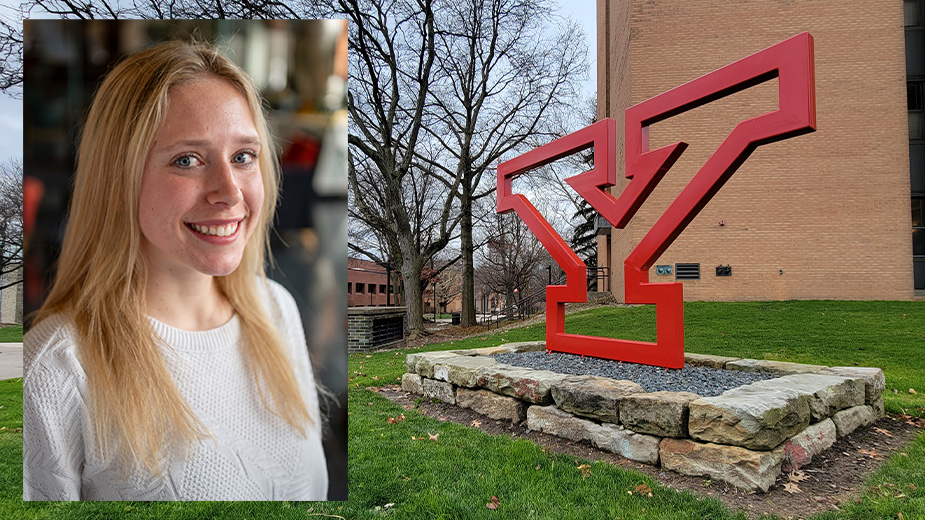Summit Addresses Economic and Workforce Challenges
YOUNGSTOWN, Ohio – Lead by listening – sounds simple enough. Too often, though, it’s ignored, says Angela Williams, president and CEO of United Way Worldwide.
Williams, the first Black woman in her role at the United Way Worldwide, opened the Federal Reserve Bank of Cleveland’s Policy Summit 2023, “Communities Thriving in a Changing Economy.”
Without getting out into the community – “leading by listening,” as Williams said – it is impossible for people to understand what is happening, especially in the poorest households.
“We ask a lot of questions out of ignorance, because a lot of us don’t want to be ingrained and in relationships with those who are in deep poverty,” Williams said. “We don’t take the time to spend time, to go to their homes, to break bread with them, to listen, to engage. And if we were to do that, then some of the questions we ask academically as educated people, we would recognize as stupid questions that shouldn’t be asked.”
With Williams’ keynote address the starting point, much of the first day, June 22, of the annual two-day summit was spent listening as the Cleveland Fed opened the conversation up to those in attendance. Participants were asked to address economic and workforce challenges they see in their communities.
Benefit Cliffs
One problem is the so-called benefit cliff, the point at which low-wage workers no longer qualify for public benefits that help to sustain their families.
The fear of losing assistance for child care, health care, housing or nutrition benefits often leads to workers declining full-time employment, a raise or promotion, which keeps them in poverty.
The deputy general manager of the Greater Cleveland RTA and a member of the Community Advisory Council of the Cleveland Fed, Natoya J. Walker Minor, voiced her concerns that there needs to be a policy recommendation regarding benefit cliffs.
“We must impact and influence HHS [Health and Human Services], Department of Labor and all those federal organizations that have rules and regulation criteria that literally create a cycle of fear and people that we are entrapping in a cycle of poverty. So literally, it’s a push-pull ebb and flow that traps them and we have a responsibility … to effect change and stop talking about it,” Minor said.
Findlay Mayor Christina Muryn suggested looking at a transition period, where government benefits are titrated down and employers can help their workers make that adjustment.
Bo Chilton, CEO of Impact Community Action in Columbus, said one employer who works with his group, Brad DeHays of Connect Housing, came to him with a novel idea to ease the effects of the benefit cliff.
Employees in training can start at a wage low enough to enable them to keep their benefits. As they earn increases by learning certain skills, the employer could put those increases into an interest-bearing escrow account so it could build until the employee makes enough to become self-sufficient.
While Chilton acknowledged the idea is untested, he believes it deserves further study.
Housing, Child Care
Zack Reed, business development administrator for the office of Cleveland Mayor Justin Bibb, said one of the concerns he hears the most about is child care.
“Federal government, government as a whole, gives tax breaks to everybody along the way,” Reed said. “Why can’t we give these families a tax break for this day care?”
Reed described a situation where child care costs $500 a week. People must pay that sum because they have to work, which means people in the service industry struggle to pay just for child care. If that money could be returned to their pockets, Reed said more money could be spent in the communities.
In Findlay, Muryn said, one of her concerns is contractors who can sell what they are building for more in other communities. A lot of money spent by government programs is focused on low- to moderate-income census tract projects.
Then those who can afford a $250,000 to $300,000 house cannot find one. Instead, they end up pricing the less expensive homes higher, leading to housing shortages, or living outside of her town.
Marygrace Billek, director of human services in Mercer County, New Jersey, also spoke about low-income housing concerns.
In December 2020, Billek said her county housed five families in hotels and motels instead of in apartments. Because of efforts to lessen homelessness coupled with a lack of affordable housing, there are now 150 families that the county is housing in hotels.
She would like to see smaller developers, who build smaller communities, get access to government funds earmarked to build affordable housing.
Petrina Carter, CEO of Tri-County Community Action Agency in Virginia, said the federal poverty level is not in synch with reality, which means people who need services are unable to access them. Likewise, Carter said the definition of homeless is unrealistic when someone who slept in a hotel the night before cannot receive homeless assistance through Community Action.
“Sometimes definitions stop people from accessing services that they so truly are in need of,” she said.
Carter also talked about help for the “sandwich generation,” those struggling with caring for both their children and their parents while also needing to earn a living.
Kumari Ghafoor-Davis, founding owner of Optimistic Expectations in Lehigh Valley, Pa., said in her area a lack of eviction expungement opportunity exists, leaving eviction to follow families permanently. Coupled with quick rent increases, it leaves people homeless within 30 days and with a record that prevents them from renting again.
Next Steps
Loretta J. Mester, president and CEO of the Federal Reserve Bank of Cleveland, said the concerns of those who spoke and those who weighed in by writing will be compiled and later released. It will give a chance to both the Fed and other organizations to see how their policies affect the economy and the lives of those trying to grow and thrive.
“I really just want to emphasize that the work that we do at the Federal Reserve really depends on the productive relationships that we have with many of the groups in this room,” Mester said.
She added that she would like to see all working together to foster a stronger, more inclusive economy.
During afternoon sessions at the summit, panelists focused on the ways organizations can support, engage and foster small businesses.
For the sixth consecutive quarter, Caroline Cawley, president of the U.S. Chamber of Commerce Foundation, said inflation tops the list of challenges for small-business owners, followed by rising interest rates, supply chain delays and revenue issues.
About half of the small-business owners polled said they have delayed expansion plans and half have borrowed to cover rising costs. But that is not stopping business owners, she said.
“There’s still a sense of entrepreneurial hope and hustle. Half of them are more hopeful about their ability to succeed and grow than they were a year ago at this time,” Cawley said.
She also noted there remains a great number of business startups.
Some of the things holding back small business growth include child care and workforce development, according to Cawley. She said there is much discussion about casting a wider net to find employees, including second-chance hiring among returning citizens, veterans, military spouses, and those with the needed skills but without a college degree.
Larry Fulton, an acquisition investor and owner of Hanlon Composites in Euclid, cited the many headwinds that affect the national economy – among them higher interest rates, low unemployment, a high number of job openings and geopolitical issues.
Nevertheless, Fulton said, so many people working means people are still spending and the economy remains hot. On the downside is how banks are looking at higher equity requirements to maintain credit quality.
Fulton also noted it can be hard to find entrepreneurs and employees in communities with failing school systems.
“We need these people who are graduating, not just from the top one, two and three schools, but also from all the school systems to be contributing members of society and contributing members of our businesses,” Fulton said.
Persons of color more often see their houses devalued, Fulton continued, when they seek to extract their equity, including those who may be hired by that entrepreneur trying to access capital.
Some other ideas thrown out to help small businesses thrive included pooling together to train workforces similar to Ohio’s TechCred program and skills savings accounts, bringing business projects into high schools to convince graduates to apply upon graduation, and gaining information from mentors through Score, formerly the Service Corps of Retired Executives.
Geri Sanchez Aglipay, administrator for the U.S. Small Business Administration Great Lakes Region, lauded federal bipartisan legislation to build infrastructure and reduce inflation, as well as efforts to bring inventive businesses like Intel to the region.
Aglipay said the SBA is working to improve its services to ensure more small businesses, especially STEM businesses, are aware of their programs and have access to capital. There also is a push to export more goods and services produced by small business.
SBA loan programs are permitting certain business owners to delay repayments and the agency is pushing for more small businesses to be able to obtain federal contracts, she said.
New SBA rules on lending are scheduled for release Aug. 1.
Pictured at top: Angela Williams, president and CEO of United Way Worldwide, was the keynote speaker at the summit.
Copyright 2024 The Business Journal, Youngstown, Ohio.



